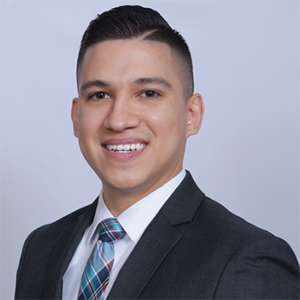Creating Opportunities on the Path to Attending-hood

After countless years of education and formal clinical training, you've finally arrived to the cardiac catheterization laboratory as the interventional cardiology fellow! The rollercoaster of success and struggle is about to begin, and the learning curve in the lab is steep. For most, this must be delicately balanced with the final weeks of studying for the Cardiovascular Disease Certification Exam. Further complicating matters for those in the final year of training, is the fear of the unknown. What will happen after you graduate for the last time? Where will you work? Where will you live? There is no Electronic Residency Application Service to guide you or National Resident Matching Program to optimize your opportunities. This is the real world, and soon you will be on your own. The process of finding a job is a precursor to this, the tip of the iceberg. Ultimately, it's a numbers game and about knowing the right people. One of these you can control at this stage. The bottom line is that the more opportunities you have, the more likely you are to land a job that meets most of your criteria. The following was my approach to create as many opportunities as possible, guided by mentors with a wide breadth of experience navigating the field of interventional cardiology over the years.
First, identify where you want to work. Location, location, location. For some of us, geography is the number one criterion which must be met, an absolute deal breaker. For others, there is more flexibility when choosing a location to live and work after training. Either way, honing in on a few geographic locations, can help focus the search. If you have anyone in your life who loves you (all of us), this is an important discussion to have with family and loved ones before embarking on the search for a job.
Second, is there a specific discipline within interventional cardiology that you are passionate about? Intracoronary imaging and physiology? Structural interventions? Endovascular interventions? If there is, this can limit the number of opportunities for you. Will the new job feed that appetite with a well-established program from day one, or is it something that will take time to develop? Overall, delineating the types of procedures you want to perform coming out of training will help better direct your approach.
Finally, utilize every relationship and person you know. It's July and every mentor you've met along the way, every co-fellow you've worked with and every industry representative you've ever come in contact with should all know you're looking for a job immediately! Interventional cardiology is still a small field, and people talk. If you are training in one part of the country, looking for a job in another, you would be surprised which one of your mentors or colleagues knows someone who might be able to help. Furthermore, there is already a well-established network of industry representatives, eager to help facilitate the process by introducing you (virtually) to their counterparts across the country. All these people can be instrumental in providing you with the right contact information, including the director of the cardiac catheterization laboratories in the regions you are interested in, as well as the directors of whichever fields within interventional cardiology you might be passionate in.
Armed with this, my approach was to distribute my curriculum vitae and an informative but concise cover letter to as many programs as possible. The rationale here was that not all employers advertise their jobs on formal forums, but more importantly not all employers know what they need until the right curriculum vitae lands on their desk. It is noteworthy to mention that most emails will go unanswered, some emails will result in directors storing your curriculum vitae in the event they need your particular skill set in the future, but a handful of emails will trigger a direct response. The more opportunities you can create, the more likely you are to find the right job for you. Simply put, you miss 100% of the shots you never take, so there is no harm in trying, no harm in asking – a lesson I learned way too late in life.
Author Acknowledgement:
I would be remiss if I did not acknowledge the support and mentorship of Hayder D. Hashim, MB, ChB, FACC, and Stephen J. Green, MD, FACC, for guiding me throughout this process.

This article was written by Giorgio A. Medranda, MD, an interventional cardiologist at NYU Langone Hospital – Long Island and Clinical Assistant Professor in the Department of Medicine at NYU Long Island School of Medicine. Twitter: @GiorgioMedranda.
This content was developed independently from the content developed for ACC.org. This content was not reviewed by the American College of Cardiology (ACC) for medical accuracy and the content is provided on an "as is" basis. Inclusion on ACC.org does not constitute a guarantee or endorsement by the ACC and ACC makes no warranty that the content is accurate, complete or error-free. The content is not a substitute for personalized medical advice and is not intended to be used as the sole basis for making individualized medical or health-related decisions. Statements or opinions expressed in this content reflect the views of the authors and do not reflect the official policy of ACC.

